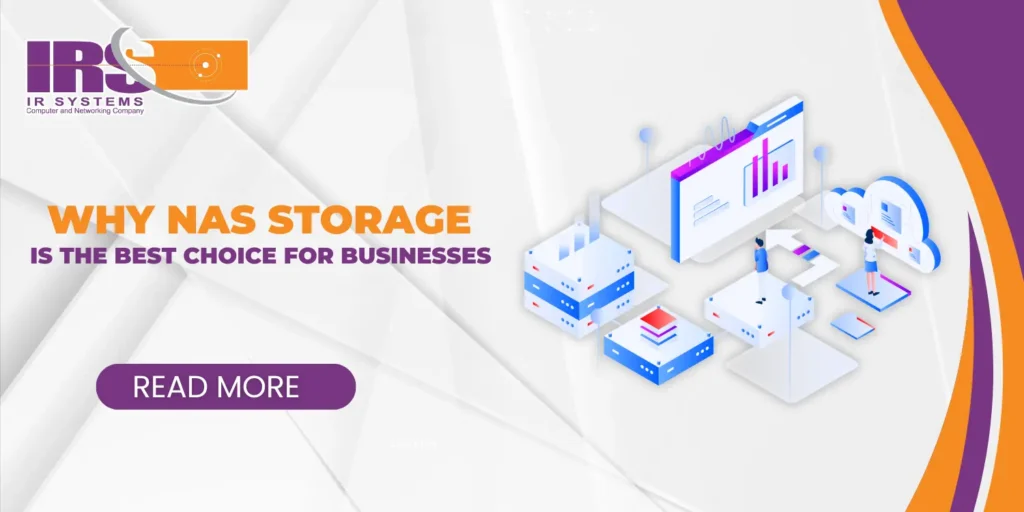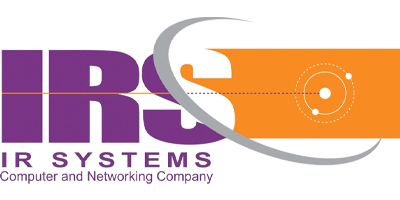Why NAS Storage is the Best Choice for Businesses

In today’s data-driven world, effective storage solutions are crucial for both businesses and individuals. Whether it’s a small office looking to centralize files or an enterprise managing large datasets, NAS storage (Network Attached Storage) provides a reliable and efficient solution. Unlike traditional storage methods, NAS offers scalability, security, and seamless remote access, making it a preferred choice for modern computing environments. This article explores the fundamentals of NAS devices, their benefits, how they compare to cloud storage servers, and how to choose the right NAS system for your needs. What is NAS Storage? NAS storage is a dedicated file storage system connected to a network, allowing multiple users and devices to access and share files from a centralized location. Unlike direct-attached storage (DAS), which connects storage devices directly to a computer, NAS provides network-based access, enhancing collaboration and data management. Key Features of NAS Storage: Centralized Storage: All data is stored in a single, accessible location. Remote Access: Users can access files from anywhere using a web interface or mobile app. Scalability: Easily add more storage as needed. Automated Backups: Ensures data protection and disaster recovery. Security & Encryption: Protects sensitive files from unauthorized access. Why Choose NAS Storage Over Traditional Methods? NAS storage offers several advantages over external hard drives, USB flash drives, and even some cloud storage servers. Here’s why NAS is becoming an essential storage solution: Higher Efficiency & Performance NAS systems operate independently, meaning they don’t consume computer resources like USB drives do. Cost-Effective Storage Expansion Instead of upgrading multiple hard drives, you can simply expand NAS storage. Enhanced Data Protection Many NAS storage devices come with RAID (Redundant Array of Independent Disks) support, offering redundancy and fault tolerance. Seamless Collaboration Teams can share and access files in real time, improving workflow efficiency. Better Control Over Data Unlike public cloud storage, NAS allows you to have full control over your data without third-party intervention. Understanding NAS Devices When choosing a NAS device, understanding the different types and features is crucial. Here are some factors to consider: 1. Types of NAS Storage Devices Personal/Home NAS: Ideal for individuals needing extra storage and media streaming. Small Business NAS: Supports multiple users with enhanced security and backup options. Enterprise NAS: Designed for large-scale operations with high-speed data transfer and extensive redundancy features. 2. Storage Capacity & Expandability NAS devices typically support multiple hard drives, allowing expansion as storage needs grow. Some high-end models allow up to 16 bays for enterprise use. 3. Performance & Connectivity Gigabit Ethernet & 10GbE support for fast data transfer. SSD Caching for quicker access to frequently used files. Multiple drive bays for redundancy and enhanced performance. 4. Security & Backup Features Built-in firewalls & encryption ensure data security. Automated backups protect against data loss. User authentication & access control allow role-based permissions. NAS vs. Cloud Storage Servers While NAS network-attached storage and cloud storage both offer remote file access, they serve different purposes. Let’s compare them: Feature NAS Storage Cloud Storage Servers Data Control Full ownership Third-party managed Accessibility Local and remote Anywhere with internet Security High (customizable) Dependent on provider Cost One-time hardware cost Recurring subscription fees Performance Faster, localized Slower due to internet dependency When to Choose NAS: When you require faster access speeds without internet dependency. When data security and privacy are a priority. If you prefer a one-time investment rather than ongoing subscription costs. When to Choose Cloud Storage: When you need global access to files without physical hardware. If automatic software updates and maintenance are preferable. When working with external teams who require seamless cloud collaboration. Setting Up a NAS System Setting up a NAS device is straightforward and typically follows these steps: Choose Your NAS Device Select a NAS system based on storage capacity, performance, and budget. Install Hard Drives Insert compatible HDDs or SSDs into the NAS bays. Connect to the Network Use an Ethernet cable to connect the NAS to your router or switch. Access the NAS Interface Use a web browser or mobile app to configure the settings. Create User Accounts & Permissions Set up multiple users and assign access levels based on roles. Enable Data Protection Features Configure RAID, backup settings, and encryption for enhanced security. Best NAS Storage Devices in 2024 Here are some top NAS storage devices to consider for various needs: Synology DS920+ – Ideal for home users and small businesses. QNAP TS-464 – Offers high-speed performance with 10GbE connectivity. Western Digital My Cloud EX2 Ultra – Affordable personal cloud storage. Buffalo TeraStation 3410DN – Great for enterprise-level security and backups. Asustor AS5304T – A solid choice for media enthusiasts and content creators. Future of NAS Storage & Emerging Trends With increasing data needs, NAS storage continues to evolve. Some emerging trends include: Integration with AI & Machine Learning: AI-driven analytics for predictive maintenance and storage optimization. Hybrid Cloud Integration: NAS systems that seamlessly sync with cloud storage servers. NVMe SSD Support: Boosts read/write speeds for demanding applications. 5G & Edge Computing Compatibility: Faster remote access and reduced latency. Final Thoughts: NAS storage is a versatile and cost-effective solution for both personal and business data management. With benefits such as data control, security, scalability, and seamless access, it stands out from traditional storage methods and cloud storage servers. Whether you’re a small business, creative professional, or enterprise user, investing in the right NAS network-attached storage system will improve efficiency and safeguard your critical data. If you’re looking for reliable NAS storage devices, ensure they align with your current and future needs. Explore models with robust security, fast performance, and expandability to get the best value for your investment. Contact us today for expert guidance on choosing the perfect NAS solution for your business or personal use.
